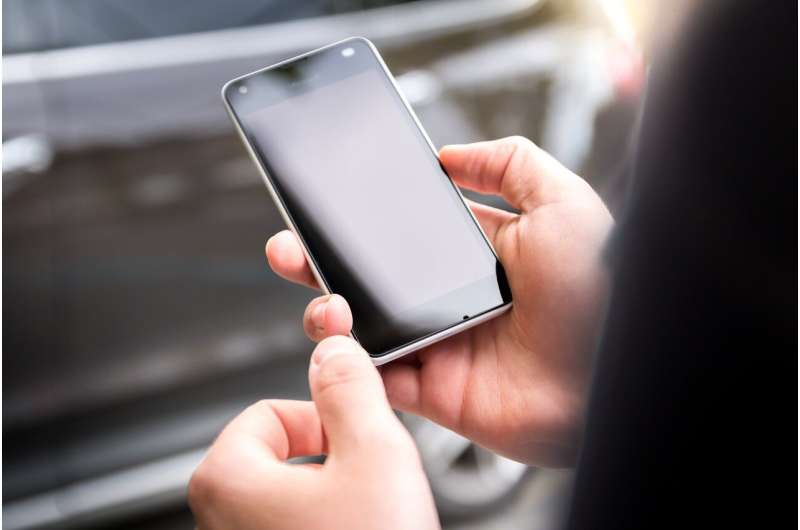QR codes, health passports: China's tech arsenal against a pandemic

Daily life in China follows a rhythm of digital check-ins, with the QR code—at offices, malls and transport hubs—an integral defence against COVID-19 that helps to track, trace and isolate patients.
Now the country where the coronavirus was first detected is launching a digital "health passport" for its 1.4 billion population which it hopes will eventually re-start international travel.
Concerns over privacy and data harvesting have for now been overshadowed by China's relative success in bringing the virus to heel. Here's how technology has spearheaded the fight against the pandemic.
Health codes
China has established a nationwide system of digital "health codes", scoring citizens on whether they pose a potential coronavirus threat based around their travel history and proximity to people with the virus.
Users have to scan a QR code to get a "green" pass in the health app, a common practice at most offices, restaurants, shopping malls, sports centres and transport stations.
The system is linked with the user's ID and phone number, and is used to track their contacts, assess their health risk, and display the results of any recent COVID-19 tests or vaccines.
The nationwide app gathers geolocation data provided by phone operators, while other regional ones link to train and plane tickets, identity checks or screening tests.
The digital health certificate extends that system by showing the holder's vaccine status and virus test results.
Is it obligatory?
Technically, the tracking app is not mandatory. But in reality, it has become impossible to move around China without it.
Airlines require it before boarding a domestic flight and a clean health code is needed to enter a train station. In Beijing, taxis ask passengers to "check in" using the app before making a journey.
Last spring, local media reported the case of a criminal who had been on the run for two decades, but ended up surrendering himself to the authorities after the health app had made it impossible for him to enter a store, get employment or move around without being detected.
Privacy concerns
In China, vast amounts of Chinese economic activity and payments are handled through digital apps such as WeChat.
Consumers surrender data on their buying habits, travel, and other personal information for digital convenience.
But worries over privacy and data security have been heightened by the health codes and fears it marks a rush of government surveillance into hundreds of millions of lives.
Last year, a law professor successfully sued a wildlife park for asking him to scan his face using facial recognition technology. The case was seen as a landmark challenge in the collection of personal data.
Chinese people "are extremely attentive to" the privacy debate, Jean-Dominique Seval, a digital economy expert and a director at Soon Consulting told AFP.
"There are discussions between lawyers and users on social networks. We can't say that [the system of app tracing] is completely 'Big Brother'... but it's not absolute data freedom either.
"It's somewhere in between and it's constantly evolving."
A Chinese model?
With its experience in managing the epidemic, Beijing is pushing for the adoption of a universal health code at the global level: a health passport to open borders.
The initiative was also proposed in November at the G20 summit by President Xi Jinping.
But although the new certificate is meant for travel in and out of China, it is currently only available for use by Chinese citizens and it is not yet mandatory.
There is also no indication authorities in other countries will use it when Chinese travellers go abroad.
"To make possible a border crossing instantly with this passport... will require discussions between many countries that are likely to be complicated and lengthy," Seval added.




No comments:
Post a Comment